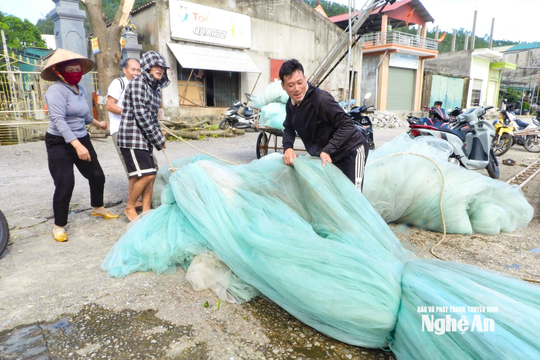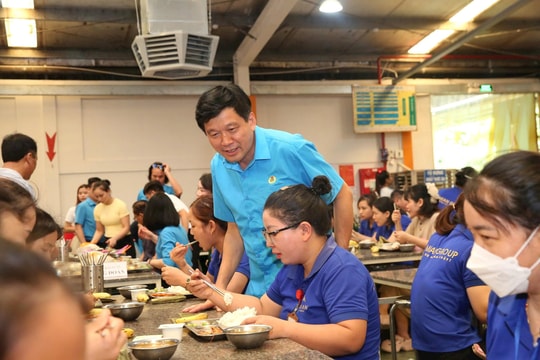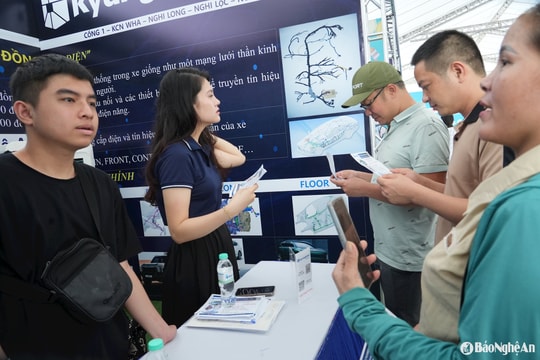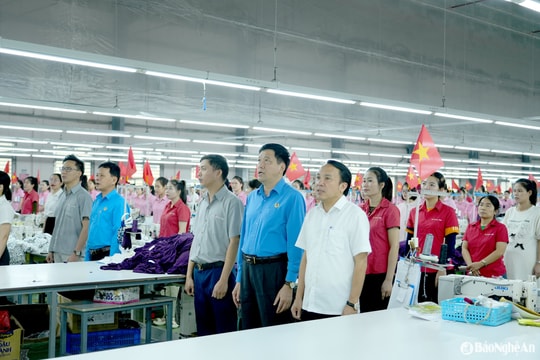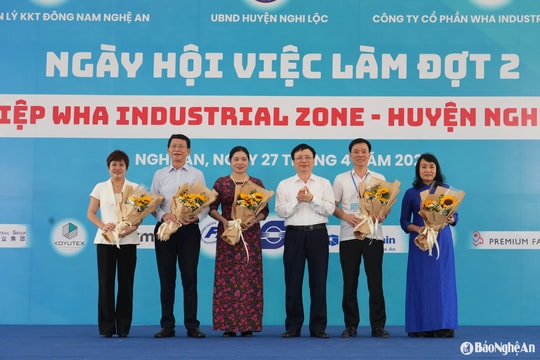Difficulty in protecting illegal workers abroad
(Baonghean) - Currently, the work of protecting Nghe An citizens abroad related to illegal workers is still facing many difficulties...
"Bridge" to protect citizens' rights and interests
Mr. Nguyen Van N in Tan Dien block, Nghi Hoa ward (Cua Lo town) has a daughter named Nguyen Thi H (born in 1988) who went to work abroad and unfortunately died in a traffic accident in Fujian (China). On July 18, 2017, Mr. N submitted a petition to the Nghe An Department of Foreign Affairs requesting "to create favorable conditions to help my family bring her body back to her hometown as soon as possible".
The difficulty is that Mr. N and his family members do not have passports, so after receiving Mr. N's application and verification information from the Vietnamese embassy in China, the Department of Foreign Affairs sent a document requesting the Consular Department (Ministry of Foreign Affairs) to help Mr. N and two other family members go to China to bring Ms. H's ashes back to their hometown for burial.
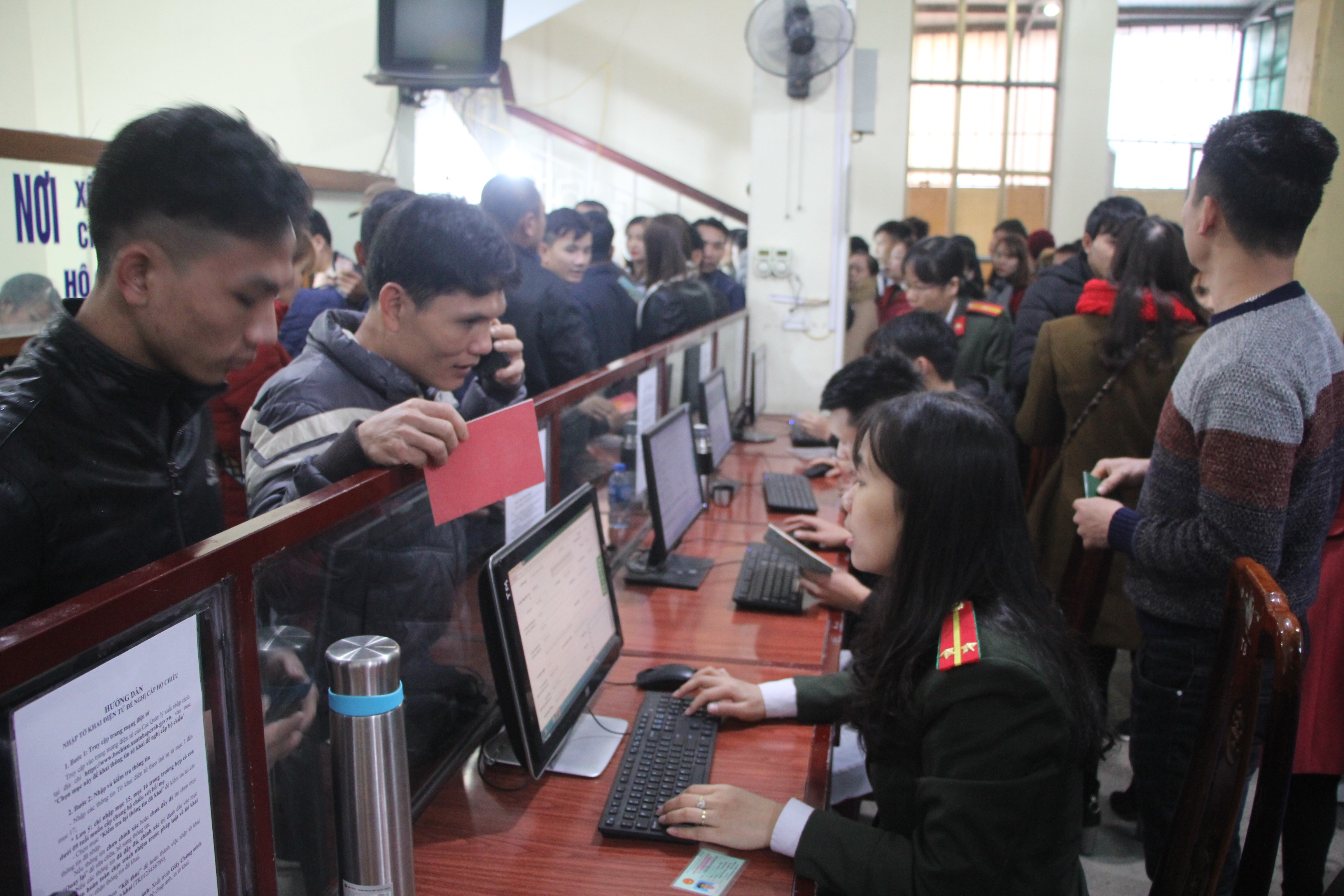 |
| Nghe An workers register for immigration procedures. Photo: Doan Hoa |
In fact, cases of timely support and assistance like Mr. N's family are not rare. For example, on October 10, 2017, the Department of Foreign Affairs received a dispatch from the Consular Department (Ministry of Foreign Affairs) regarding the verification of relatives of 4 female citizens suspected of being tricked and sold to China.
Accordingly, on September 28, 2017, 4 female citizens (from Tam Dinh and Xa Luong communes, Tuong Duong district) were promised to find jobs by a person named Hung who met them online and was taken to Mong Cai Border Gate to be handed over to an unidentified Chinese man. The victims then escaped and asked someone to inform the Vietnamese Consulate General in China. All 4 people had no money or identification papers.
Upon receiving the information, in order to promptly resolve the issue of bringing citizens back to the country, the Department of Foreign Affairs sent a dispatch to the People's Committee of Tuong Duong district requesting to connect and notify the families of the above 4 citizens, instructing the families to deposit money into the Citizen Protection Fund to complete the procedures.
Or recently (January 25, 2018), Nghe An Department of Foreign Affairs received a dispatch from the Consular Department to help verify the relatives of Vietnamese citizen Vo Van P, born in 1994, hometown Nghi Long, Nghi Loc, who died of unknown causes in Phuc Chau city, Phuc Kien (China). The Department of Foreign Affairs notified the victim's family and instructed them to contact the Consular Department to complete the necessary procedures to bring the victim back to the country.
According to Mr. Vo Van Cuong - Head of the Consular Department - Overseas Vietnamese (Department of Foreign Affairs): In 2017, the Department of Foreign Affairs coordinated with relevant departments and branches to resolve 21 cases/56 subjects who were Nghe An people abroad. Mainly cases of violations of immigration laws, residing in Laos, Thailand, China, Belarus... died due to traffic accidents, boat sinking, being sold abroad. The Department supported and helped contact local authorities, families of the subjects to inform the situation, guide relatives to contact the Consular Department (Ministry of Foreign Affairs) or Vietnamese Embassies in other countries to carry out necessary procedures, contributing to protecting the legitimate rights and interests of citizens.
"There are cases where relatives who went to work abroad lost contact with their families after more than ten years. Their families also went to the Department of Foreign Affairs to ask for help connecting with relevant agencies to find them. Fortunately, the family was able to contact them and the person who went to work abroad returned to the country," said Mr. Cuong.
Difficult to protect illegal workers
However, the protection work for citizens in the province who work abroad illegally or illegally is still facing many difficulties. These subjects are not only not guaranteed insurance regimes, policies, and labor rights in accordance with the provisions of law, but also when citizens encounter risks and misfortunes abroad (being murdered, having traffic accidents, work accidents, dying due to illness, etc.), verifying their identity and intervening to bring the body back to their hometown is very difficult.
Because workers do not register their citizenship with Vietnamese representative agencies abroad, in case of accidents or risks, in order to help and protect them, the representative agencies must take a certain amount of time to verify from the time they receive the information.
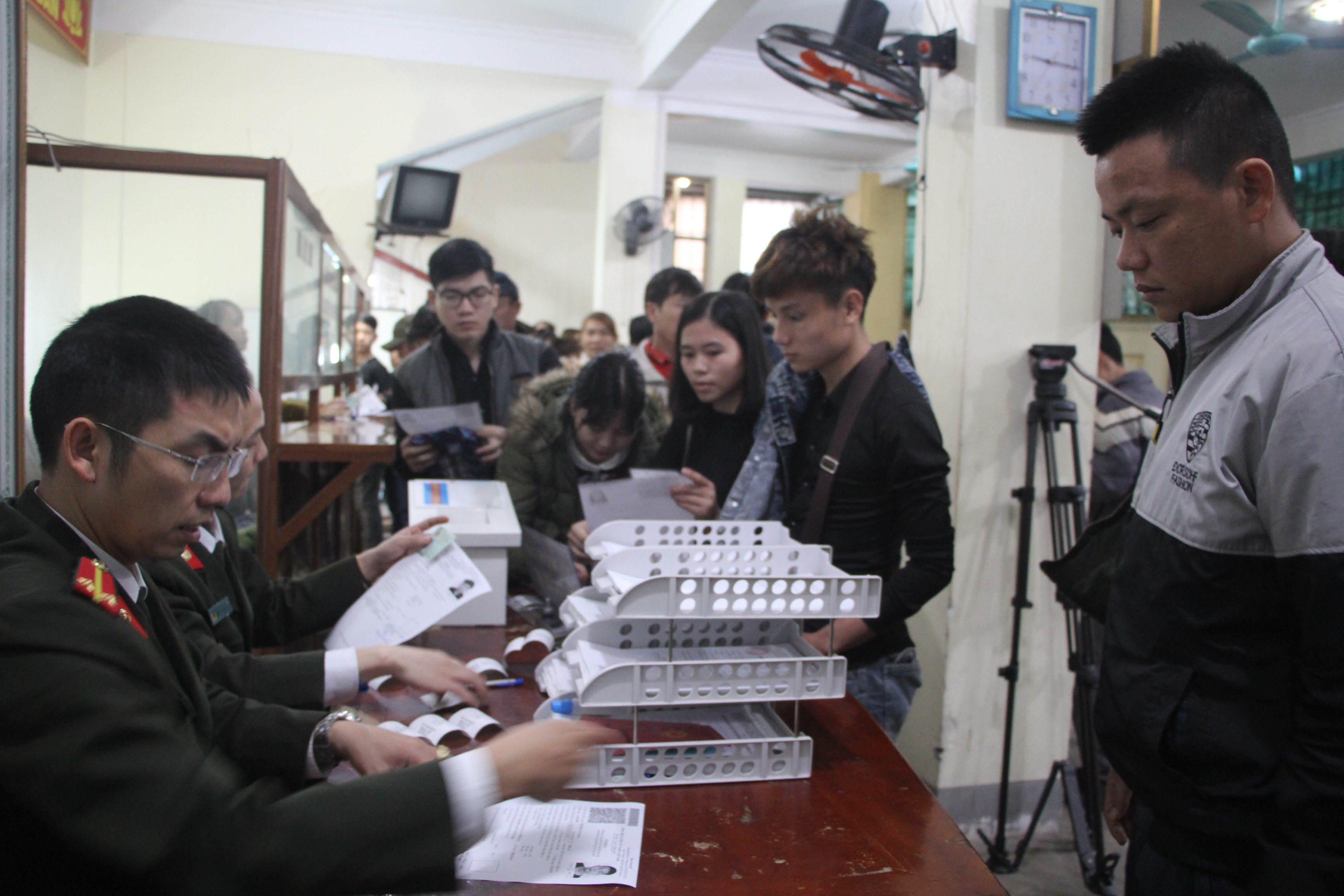 |
| People register for immigration procedures. Photo: Doan Hoa |
For example, on January 11, 2018, the Department of Foreign Affairs received a dispatch from the Consular Department verifying the identity of a Nghe An citizen arrested in Ecuador, Nguyen Tam A, from Nghi Loc, Nghe An. According to the Vietnamese Embassy in Chile (also in Ecuador), the person and two others flew from Ecuador to Madrid (Spain) but were denied entry by Spanish authorities because their identity documents were invalid and were returned to Ecuador on December 25, 2017.
The Vietnamese Embassy in Chile interviewed him by phone and he stated that he was guided by a person named Huy in Vietnam to Spain via Vietnam - Dubai - Argentina - Ecuador - Spain (however, according to Ecuadorian authorities, he entered the country from Colombia). In this case, the Department of Foreign Affairs had to send a dispatch to the Provincial Police asking for help verifying his relatives' details. And according to the verification of the Provincial Police, the person resided in Quan Hanh town, Nghi Loc district. Tam A was then advanced a plane ticket to return home by the international immigration organization in Ecoador.
In addition, for illegal workers who enter the country illegally, in addition to being imprisoned, they are also deported and have to find financial resources to cover expenses and buy plane tickets to return home because the source of funding for the Citizen Protection Fund is mainly based on the principle of advance payment or guarantee or deposit. Most workers have difficult family circumstances, so when relatives are asked to pay for plane tickets and fines, many families cannot come out or pay less, so the time the workers are detained abroad is prolonged.
In 2017, the Nghe An Department of Foreign Affairs received many official dispatches from the Consular Department (Ministry of Foreign Affairs) regarding similar cases, most of which were in the Republic of Belarus (about more than 20 cases). For example, citizens Hoang Van D and Le Minh Q, both from Nghe An, violated immigration in Belarus and were released from prison on February 2, 2018. According to the announcement from the Vietnamese Embassy in Belarus, the cost of buying a ticket back to the country for one person was 1,000 USD and the fine (due to being arrested for the second time and serving a 2-month prison sentence, the cost of transporting citizens from the detention center to the airport was 200 USD, the total amount to be paid was 1,200 USD (equivalent to 27,300,000 VND/person).
From the above situation, in addition to solutions to promote propaganda and widely disseminate the Party's policies and the State's laws on labor export, it is necessary to diversify forms of training, dissemination and implementation of legal documents, treaties and international agreements related to the protection of Vietnamese citizens abroad to cadres, civil servants, public employees and citizens; Strengthen the coordination mechanism and information exchange between domestic and foreign authorities to serve the timely protection of citizens; Link labor quality with training, improve the sense of discipline, understanding of the laws, customs, practices and culture of the host country for workers when working abroad; regularly warn of dangers and risks when going to work abroad in some markets so that workers know and proactively prevent them.

